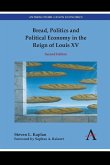The concept of 'performativity' has risen to prominence throughout the humanities. The rise of financial derivatives reflects the power of the performative sign in the economic sphere. As recent debates about gender identity show, the concept of performativity is also profoundly influential on people's personal lives. Although the autonomous power of representation has been studied in disciplines ranging from economics to poetics, however, it has not yet been evaluated in ethical terms. This book supplies that deficiency, providing an ethical critique of performative representation as it is manifested in semiotics, linguistics, philosophy, poetics, theology and economics. It constructs a moral criticism of the performative sign in two ways: first, by identifying its rise to power as a single phenomenon manifested in various different areas; and second, by locating efficacious representation in its historical context, thus connecting it to idolatry, magic, usuryand similar performative signs. The book concludes by suggesting that earlier ethical critiques of efficacious representation might be revived in our own postmodern era.
Bitte wählen Sie Ihr Anliegen aus.
Rechnungen
Retourenschein anfordern
Bestellstatus
Storno








